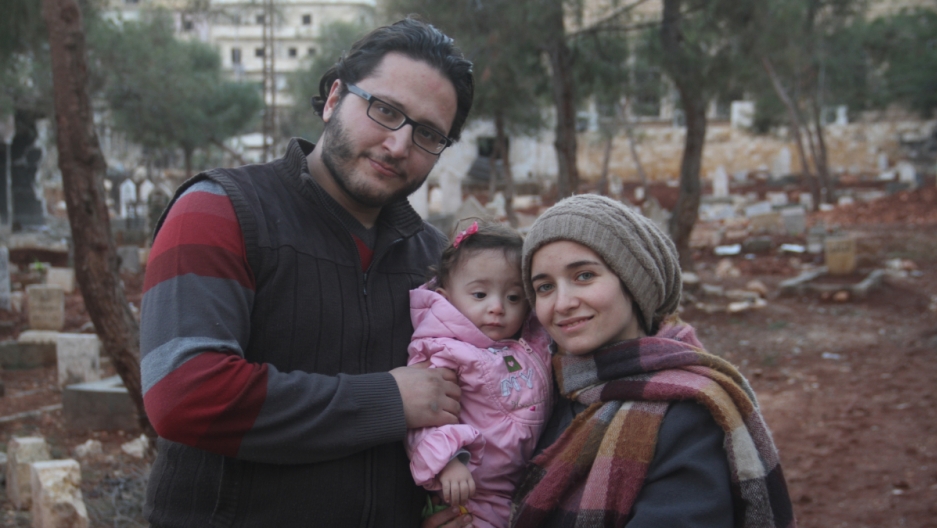For Sama
Directors/ Waad al-Khateab, Edward Watts
Watched on Amazon
Rating 4.5/5
There is a moment in For Sama which caused me to gasp out loud. This is rare for me. I watch most documentaries alone in my home studio, and usually my reactions are silent scoffs or impatient shakes of the head or a mental “give me a break” when I feel the gears of manipulation working too hard. But in the moment I’m referring to, doctors have just performed an emergency Caesarean on a young woman injured in a bomb blast. The mother is unconscious, the baby is not breathing. Doctors and nurses hold the child upside down and furiously pound and shake it, while the sounds of distant bombs and gunfire ricochet outside the hospital walls. I won’t give away what happens next, but it is perhaps the most remarkable scene in a movie full of remarkable scenes and remarkable people.
For Sama is set entirely within the besieged city of Aleppo, ground zero for the battle between Syrian president Bashar Hafez al-Assad’s regime forces and the resistance fighters, who continue to wage what looks like a lost cause, with few resources and little assistance from other countries. There have been many documentaries about both Syria and Afghanistan in the last several years, too many in my opinion. The majority of these films look and feel the same, relying exclusively on shaky handheld iPhone or low-grade video camera footage, usually shot by the main protagonist, and artificially pumped-up for maximum shock and effect. I wasn’t looking forward to watching another.
But this film is different.
The protagonist in For Sama is a young Syrian journalist and mother, Waad al-Khateab, and it is her first-person story, told in the form of diary entries to her young daughter Sama and composed of her unflinching, intimate footage of her family and friends’ struggle to survive, that sets this movie apart. It is a model of honest, gripping, elemental documentary filmmaking. The movie relentlessly pulls at your emotions, but without the forced dramatics, the pleading music score, and the reams of expositional on-screen text which far too many films resort to these days. For Sama needs none of that.
The daily heartbreak, the searing grief, and the sudden tragedies of life in a target zone are presented to us unadorned and unfiltered. Death is everywhere, and Waad is not afraid to show us what shredded bodies and bloodied floors look like. There are several scenes of injured and dying children, shots of body bags closing over faces, mothers cradling the dead. Since Waad’s husband, Hamza, runs one of the few operating hospitals in the city, she is present for some of the most wrenching decisions he and his staff must make.
But there are also a few slivers of hope and joy and normalcy. Waad and Hamza celebrate their wedding, the birth of their daughter, their first house, and the terrace garden they try and cultivate. The city rejoices over what looks like progress in their resistance, and Waad makes friends with a neighbor family whose strength inspires her. Yet, the shelling by Russian warplanes continues. Families trying to escape are massacred. The bodies pile up.
The sense of impending doom is ever present, and this tension underscores every scene in the film. A viewer must ask, at some point, why? Why do you stay? Why are you risking Sama’s life? Even if you survive, the reality of post-traumatic stress will linger for years. Is it worth it? It’s a testament to Waad’s self-doubt that she asks these questions, too, but is unsure of the answers.
Meanwhile, the options for her family and everyone who remains in Aleppo grow perilously thin. Time is running out. And Waad must finally confront the decision she’s been avoiding since the siege began.

